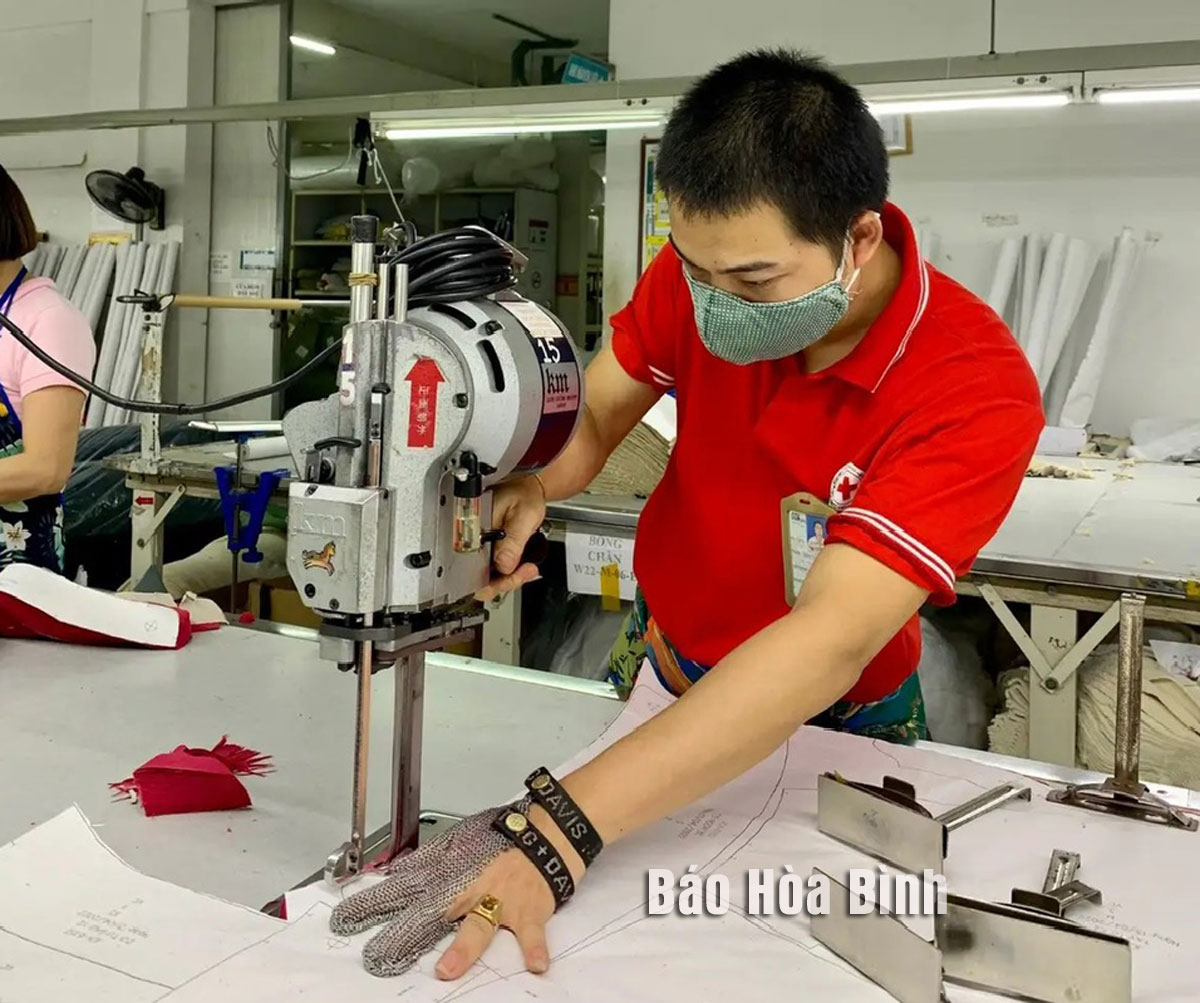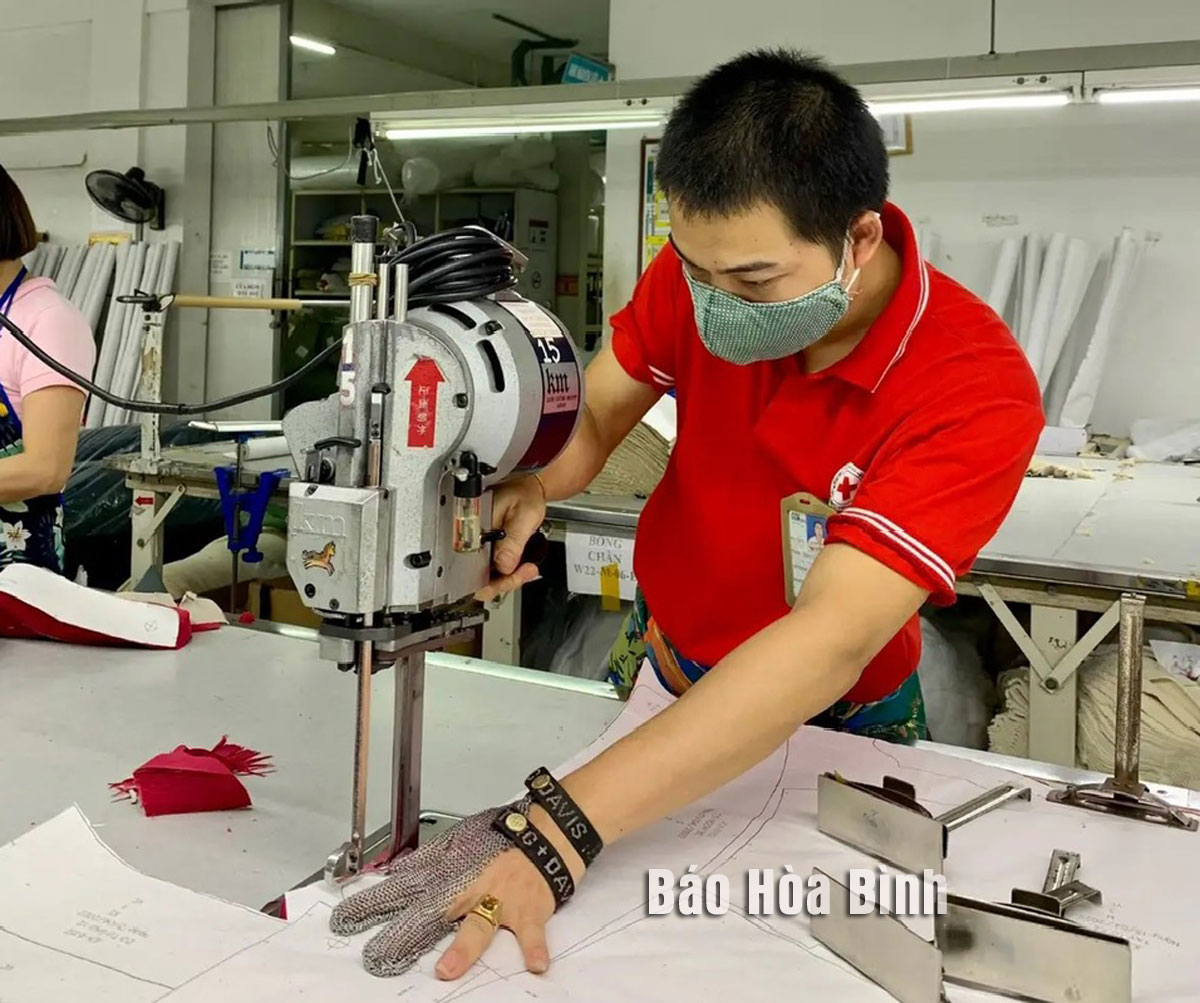
According to the report of the Provincial People's Committee, from the beginning of the year to the end of October, in the whole province there have been 45 off-budget capital investment projects the investment policies of which has been approved with a total registered investment capital of about 20,000 billion VND. There have been 760 projects in the provincen so far; there are 36 foreign direct investment projects with a total registered capital of about 608 million USD and 724 domestic investment projects with a total registered capital of about 275,000 billion VND.

GGS Vietnam Co., Ltd. is a 100% foreign-invested
enterprise, producing and doing business effectively in the industrial park of
the left bank of Song Da (Hoa Binh City).
There are 5 new projects investing in the industrial
parks. The revenue from the production and business activities of the
enterprises in the industrial parks is estimated at 22,000 billion VND,
increasing 6% compared to that of the same period last year, reaching 100% of
the assigned plan; creating new jobs for 1,300 local people.
In addition, since the beginning of the year, there
have been 440 newly registered enterprises with a total registered capital of
5,200 billion VND in the whole province; Compared to the same period last year,
the number of new businesses decreased by 8.71%, the registered capital
decreased by 45.2%. There are 200 enterprises registered to temporarily suspend
production and business activities; 950 businesses temporarily suspended
operations without registration or awaiting dissolution; 160 businesses
returned to the market. Accumulated up to now, it is estimated to have 3,500
businesses operating in the economy in the whole province. The business
innovation arrangement continues to be implemented as planned.
According to data from the Hoa Binh Provincial Party Committee, the industrial production index for the first six months of 2025 is estimated to have increased by 20% compared to the same period last year. This marks the highest year-on-year growth rate for this period since 2020.
In the first six months of 2025, Hoa Binh province’s export turnover was estimated at 1.145 billion USD, marking an 18.11% increase compared to the same period in 2024. Import turnover was estimated at $ 804 million, a 17.15% increase, which helped the province maintain a positive trade balance.
The lives of the ethnic minority farmers in Tan Lac district have gradually improved thanks to the new directions in agricultural production. This is a testament to the collective strength fostered through the professional associations and groups implemented by various levels of the district’s Farmers’ Union.
With the motto the "product quality comes first,” after nearly one year of establishment and operation, Muong village’s Clean Food Agricultural and Commercial Cooperative, located in Cau Hamlet, Hung Son Commune (Kim Boi district), has launched reputable, high-quality agricultural products to the market that are well-received by consumers. The products such as Muong village’s pork sausage, salt-cured chicken, and salt-cured pork hocks have gradually carved out a place in the market and they are on the path to obtaining the OCOP certification.
In the past, the phrase "bumper harvest, rock-bottom prices" was a familiar refrain for Vietnamese farmers engaged in fragmented, small-scale agriculture. But today, a new spirit is emerging across rural areas of Hoa Binh province - one of collaboration, organisation, and collective economic models that provide a stable foundation for production.
Maintaining growing area codes and packing facility codes in accordance with regulations is a mandatory requirement for agricultural products to be eligible for export. Recently, the Department of Agriculture and Environment of Hoa Binh province has intensified technical supervision of designated farming areas and packing facilities to safeguard the "green passport" that enables its products to access international markets.



